by Naomi L. | November 5, 2014 | Blog, Creative Writing, What If? Writing Prompts |
Here’s the next batch of “What If?” Writing Prompts I promised. This week’s post features another set of romance prompts for you to enjoy. Have fun!
 What if… you found yourself stuck in an elevator alone with the person you secretly love?
What if… you found yourself stuck in an elevator alone with the person you secretly love?
What if… you found an anonymous love letter hidden in your office desk?
What if… you knew two of your friends liked each other, and you had a plan to get them together?
What if… you had a dream you fell in love with a stranger… and then met that same person in real life the following day?
What if… you knew your best chance at finding love was to stop looking for it?
If you have any “What If?” writing prompt suggestions (for any theme), please feel free to share them in the comments below. Ideas I like may be featured in future “What If?” posts, with full credit and a link to your blog (if you have one)! Also, if you’ve written a piece based on an idea you’ve found here, be sure to link back to the respective “What If?” post. I would love to see what you’ve done with the prompt! Thank you!
by Naomi L. | October 8, 2014 | Blog, Creative Writing, Featured |
A year ago tomorrow, I shared a post on five points that are often overlooked in William Shakespeare’s timeless play, Romeo & Juliet. Now I’m back and inspired to strongly defend it a second time. Nowadays, it’s “cool” to criticize this story and dismiss it as a silly tale about two naïve infatuated teenagers whose irresponsible actions cause the deaths of six people, themselves included. I know because I used to be one of said critics. Since recently starting to learn more about this play, however, I’ve come to the conclusion that people need to stop being so cynical and start making an effort to appreciate the story Shakespeare was really trying to tell.
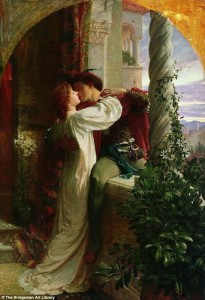
“Romeo and Juliet”, 1884, oil on canvas painting by Frank Bernard Dicksee
Fortunately, there are plenty of people who do understand what Romeo & Juliet is really about and who are more than willing to share their opinions on it. If you want to discover the real meaning of this story, start by following the “Defending RJ” tag on Tumblr. RomeoandJulietFan’s blog is also a must-read, as she does an excellent job of curating the best content defending this play. There are plenty of good points to be made on this side of the debate, but most arguments cover the same basic few.
So in the interest of revealing the true depth of this classic tale, today’s topic once again covers some important points often missed in my favorite Shakespearean play. Enjoy!
(Warning: the following post contains possible spoilers for Romeo & Juliet. If you’re one of the few people on the Internet who are not familiar with this tragic story, proceed with caution. Or you can just read a full summary of the plot here.)
True Love or Teen Fling?
This question seems to be at the heart of most R&J arguments, and understandably so. Still, it hardly makes sense to criticize a key element of a 16th-century play by 21st-century standards. While today it may seem silly to think two people can truly fall in love at first sight, remember that Shakespeare wrote his plays at a time when people thought fate was controlled by the stars and instant love was believed to be normal. It’s entirely possible that he did intend for his adolescent protagonists to be soulmates and for their love to be seen as genuine. There are several clues in the text to support this (one of my favorites being how the lovers’ first conversation reads as a sonnet), but the only way to know for sure would be to ask the playwright himself, so there may never be a definite consensus. It all comes down to interpretation.
So were Romeo and Juliet really in love, or did they just share a fiery passion that was doomed to burn out? This is the major point that most people miss: it doesn’t matter. Romeo & Juliet is a tragedy because whether their marriage was a testament to eternal love or a mistake made in the heat of the moment, they never got to find out. Had they lived in a different time or place where they didn’t constantly have to circumvent hostility, they could have been free to let their relationship run its course, however it might have played out. Instead, they meet an untimely end after an unfortunate mix-up forces them to make an unthinkable choice between (so they believed) facing life alone or being together eternally in death. Whatever their relationship was or could have been, it ended far too soon.
Which brings me to the next point…
Romeo & Juliet condemns Hate, not Love!
It baffles me how so-called R&J haters tend to blame the main characters for all the tragedies that unfold throughout the story (which I admit is ironic, given that I used to do the same). RomeoandJulietFan highlights this point perfectly in one of her rants: somehow everyone forgets that all the violence is a continuation of a feud established in the very first scene of the play, and not the fault of a couple of teenagers who were actually the only people from either family trying to escape the rivalry. Yes, Romeo and Juliet do make some poor choices themselves, but judging the completely natural impulsiveness of young people while excusing the irrational and destructive enmity of adults? Come on.
Now don’t get me wrong; in no way am I condoning the romanticization of teen suicide. But technically neither was Shakespeare. The message that should be taken from Romeo and Juliet’s deaths isn’t that lovers in a forbidden relationship should kill themselves, nor that teenagers who would willingly die for each other are stupid. It’s that hatred kills.
Think about it: none of the events leading up to the final tragedy would have happened if the Capulets and the Montagues had just gotten along from the start. Romeo and Juliet wouldn’t have had to keep their relationship a secret, Mercutio and Tybalt wouldn’t have died fighting for their houses’ honor, Friar Laurence wouldn’t have had to concoct the escape plan that failed, and these poor children never would have ended up in the depressing situation that drove them to suicide. By this logic, there’s only one conclusion that can be drawn from the plight of Romeo and Juliet: their families killed them.
So no, the real fools of the story are not the misguided teenagers who chose to pursue love against impossible odds. They’re the adults who should have known better, who should have invested their energy in lovingly raising their children instead of prolonging a feud that, as far as we can tell, had no justification to begin with. Not once throughout the entire play do we see Romeo directly interact with his parents; in fact, his only on-stage relationship with an adult is with Friar Laurence. Likewise, Juliet’s closest parental figure is her nurse, while the few conversations in which we ever see her parents express concern for her always have to do with marrying her off (to a complete stranger, no less). Even the friar and the nurse are guilty of making bad decisions, the former hatching high-risk plans that endanger the lovers’ lives and the latter abandoning her surrogate child in her hour of greatest need. However reckless the young protagonists may have been, it isn’t fair to criticize their poor judgment when it’s clear in the end that no one was there to protect them, whether it was from the feud or from themselves.
Taking all this into account, it’s actually quite amazing how greatly Romeo and Juliet contrast with every other character in the story. So perhaps we shouldn’t be focusing on their flaws so much as on their strengths…
Meet the real Romeo Montague and Juliet Capulet
R&J Hating 101 says that for every criticism of a bad decision made by one of the title characters, at least one reference must be made to their extreme youth. Yes, Romeo and Juliet were young, arguably too young for their story to have played out any other way. If you’ve jumped on this bandwagon, you’re no doubt overly familiar with the phrase “They were just kids!”, perhaps even having used it yourself.
Well, guess what? You were a kid once too. There was a time when you too believed that love could conquer all, that there might be one perfect person out there for you and if you found them, everything in your life would magically fall into place because destiny said you were supposed to be together forever. The major flaw in the logic behind R&J bashing is that the very trait for which the main characters are criticized is precisely what makes them realistic and relatable. Romeo and Juliet behaved exactly as would be expected of people their age, and if you can’t for one second imagine yourself in their place and sympathize with these idealistic lovers, then frankly I feel sorry for you.
So now that we’ve established that Romeo and Juliet were young, naïve and impulsive (i.e. normal teenagers), let’s take a closer look into the iconic characters Shakespeare so carefully constructed.
Romeo Montague is the literary epitome of the passionate lover. This is clear from his introductory scene, which already has him reciting romantic poetry and lamenting over an unrequited love. Yes, he claimed to love a girl named Rosaline before he fell for Juliet, but as I’ve pointed out before, this switch is important to demonstrate the difference between an infatuated boy and a young man in love. It also gives us an insight into his most defining characteristic: he loves to love. The fact that Romeo grew up surrounded by hatred and still chose to pursue romance above all else speaks volumes of his inherently good nature, and that alone entitles him to a little credit, even admiration.
Some character analyses point out that Romeo’s intense love for Juliet is an extension of his tendency to exaggerate emotion altogether, and it’s this for which he’s usually berated by critics. True, he should not have let his rage over Mercutio’s death drive him to murder Tybalt, nor should he have been in such a hurry to die after hearing the news of his wife’s “death”. Yet one must ask: if Romeo had not been such an emotional person, would his war-abolishing affair with Juliet ever have happened in the first place? Of course we shouldn’t condone his terrible choices, but we should at least acknowledge that he’s a well-rounded character whose personality consists equally of virtues such as loyalty, courage and honesty. The complexity of Romeo’s character is what makes him such a solid pillar of one of the most enduring love stories ever written… as is the case of his complementary “other half”.
Juliet Capulet undoubtedly undergoes the most substantial development of any character in the story. Of all the misinformed comments I ever used to make against this play, the most embarrassing is by far mistaking this brave young woman for a foolish submissive child. Much like Romeo, Juliet is established early on as an independent thinker by showing no interest in the same matters as her family (in her case, marriage). Unlike her lover, however, she tends to be more rational and does not let her emotions completely drive her actions, which is actually quite outstanding for a teenager in love.
Juliet is only thirteen, yet people judge her decisions as though she should have made them with the experience of a woman three times her age. Hardly anyone seems to recognize how impressive it is that a girl that young is clever enough to pull an older boy out of his romantic illusions and into a serious commitment. Within the first few minutes of meeting Romeo, Juliet already calls him out on his clichés with a shrewd “You kiss by th’ book” (1.5.114) and consequently inspires in him some of the most iconic love poetry in the history of English literature. Also notice in the famous balcony scene (Act II, Scene II) that Juliet does not let her profound love for Romeo blind her into wholeheartedly accepting his declarations of love, but instead challenges him to prove his devotion by marrying her. Her decision to reunite with her husband after his banishment is not made in haste; however reckless you think she may have been, you can’t deny it takes remarkable courage to give up the security of family and social status in order to pursue happiness. Even Juliet’s suicide takes more daring than Romeo’s (stabbing being far more painful than poisoning), yet she remains loyal to him until the very end, never doubting for one second that her rightful place is eternally by his side.
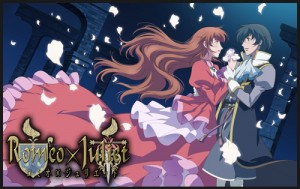
The star-crossed lovers as they appear in the anime adaptation, Romeo x Juliet
From my interpretation, Romeo and Juliet are a good match because they complete each other; Romeo is passionate and loyal, while Juliet is levelheaded and astute. As RomeoandJulietFan points out, the main characters likely connected so well because they were each exactly what the other needed at the time of their meeting. They were not simply hormonal teenagers acting out of lust; otherwise they could just as easily have given in to desire instead of getting married, or gone their separate ways at the first obstacle that forced them apart instead of striving to be together even in death. You can choose to believe it wasn’t true love, but you can’t say that what Romeo and Juliet had was anything but genuine.
Romeo & Juliet is far from an idealized love story, but that’s exactly the point. Young passion thwarted by circumstance is unquestionably the central theme of the play, and one can’t hope to appreciate Shakespeare’s beloved creation without making an effort to fully understand the intricate tale of star-crossed love that, 400 years after premiering on stage, still stands as a highly relevant theme in today’s artistic culture.
And if you still need convincing that all the hate around Romeo & Juliet is unjustified, do yourself a favor and read this post. It pretty much says it all.
I hope you’ve enjoyed reading about these important points of Romeo & Juliet! As you can see, this play is one of my favorites for several reasons, and I defend it in the hope that others may come to love it as much as I do. If you weren’t already, I hope I’ve made a Romeo & Juliet fan out of you! Thanks for reading!
References/Further Reading
by Naomi L. | August 29, 2014 | J.C. Wolfe's Writing, Poetry |
Ask me what I want the most,
And I’ll tell you
I want to be with you.
Ask me if I know it won’t be easy,
And I’ll tell you
I don’t mind one bit.
Ask me if I’m sure,
And I’ll tell you
I’d do whatever it takes.
Ask me why I would,
And I’ll tell you
It’s because I love you.
Ask me why I do,
And I’ll tell you
It’s because you make me happy.
Ask me how happy you make me,
And I’ll tell you
I wouldn’t wait this long for anyone else.
Ask me why I’d wait for you,
And I’ll smile
Because you already know.
I want to be with you
Because you’re worth the wait.
Happy Birthday to my best friend and adoring boyfriend! Thank you for being so wonderful! I hope to be with you again soon. I love you, sweetheart!
by Naomi L. | August 13, 2014 | Blog, Creative Writing, What If? Writing Prompts |
I’ve covered the question “What if?” pretty thoroughly in the last couple of weeks. On the off chance you haven’t had enough yet, here’s one more batch of “What If?” writing prompts for you, this time in one of my favorite genres: romance. See what you can do with these, and feel free to add more of your own! Enjoy!
 What if… love at first sight – true love in one look – actually can happen in real life?
What if… love at first sight – true love in one look – actually can happen in real life?
What if… Friar Laurence’s plan had worked, and Romeo and Juliet had succeeded in running away together?
What if… nobody believed in fate, but instead had to trust in their own abilities to find love?
What if… people only ever fell in love based on inner beauty?
What if… love is an emotion that isn’t exclusive to humans, but that any living creature is capable of experiencing?
Good luck spinning your own tales in the timeless theme of romance!
If you have any “What If?” writing prompt suggestions (for any theme), please feel free to share them in the comments below. Ideas I like may be featured in future “What If?” posts, with full credit and a link to your blog (if you have one)! Also, if you’ve written a piece based on an idea you’ve found here, be sure to link back to the respective “What If?” post. I would love to see what you’ve done with the prompt! Thank you!
by Naomi L. | August 8, 2014 | J.C. Wolfe's Writing, Poetry |
Oh lady, my lady
With long raven hair.
There isn’t a soul
Who would not stop and stare.
Your eyes are like diamonds
That sparkle so bright.
And with that physique,
You could win any fight.
You tower above us,
So wonderfully tall.
An amazon woman,
The fairest of all.
And though some would say
That it’s terribly weird,
Your loveliest trait
Is your long scruffy beard.
Based on a circus-themed writing prompt from Writer’s Carnival: Ode to the Lady.
You don’t know what it is, but the bearded lady holds some magical attraction for you. But she won’t give you the time of day. You decide to express your love in verse. Write a poem, any style, to the bearded lady. Examples of some poetry forms would be free verse, sonnet, limerick, ode, ballad, etc.
Though I wrote this poem in less than 15 minutes, I’m quite pleased with how it turned out. I hope you enjoy what I’ve written. Thanks for reading!
 What if… you found yourself stuck in an elevator alone with the person you secretly love?
What if… you found yourself stuck in an elevator alone with the person you secretly love?

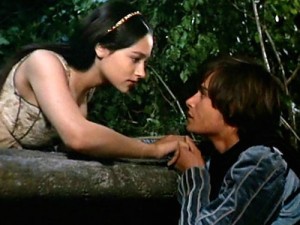
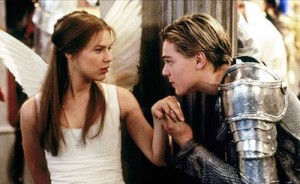
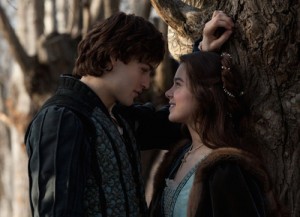



Recent Comments